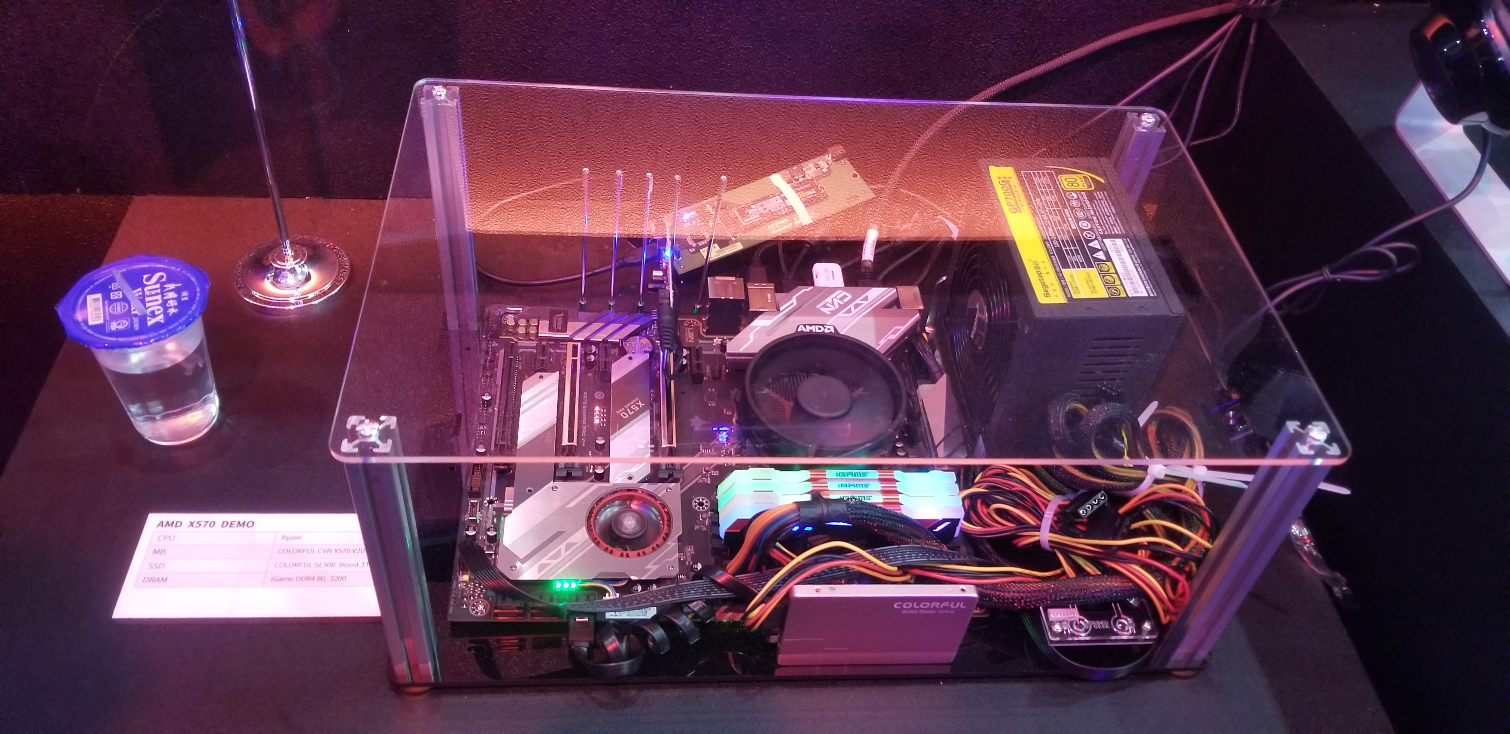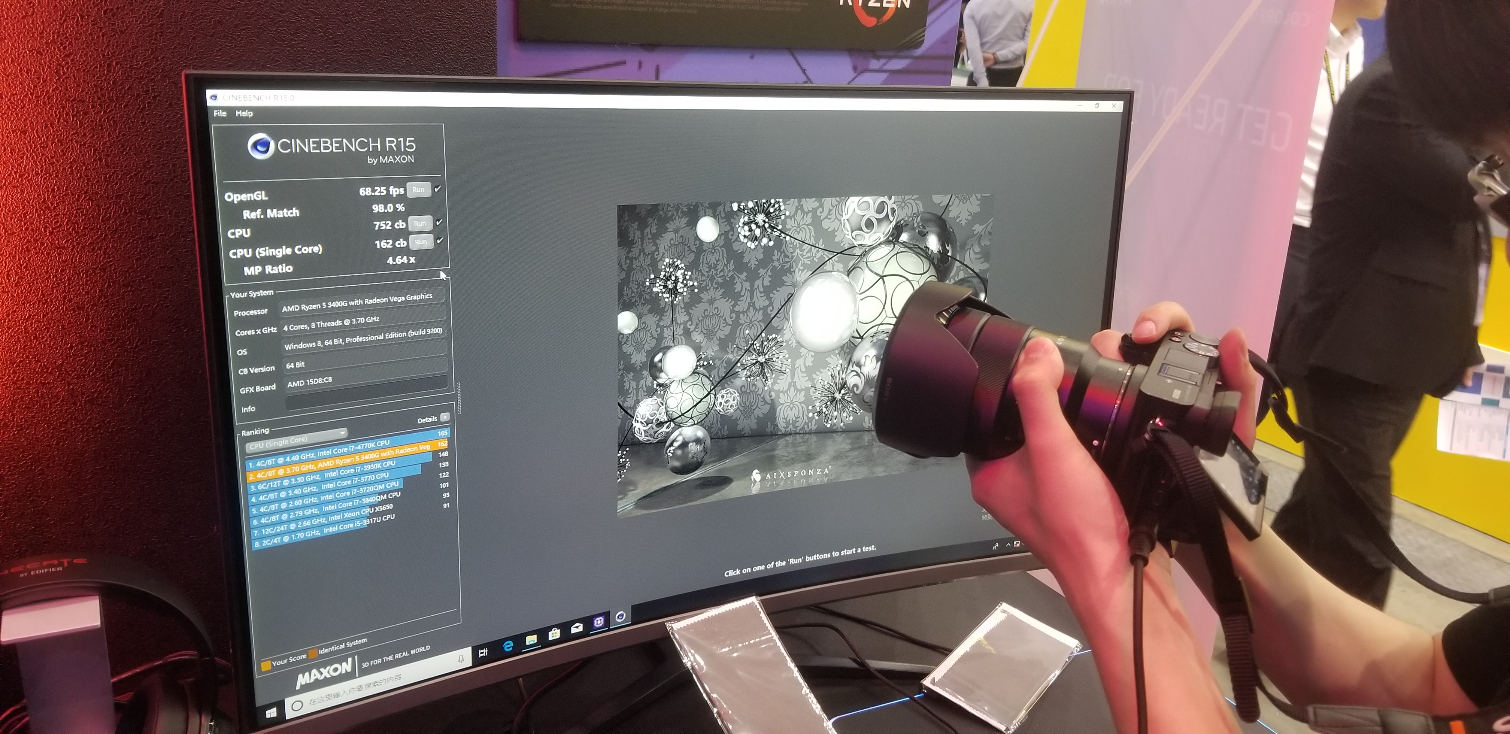Benchmarking AMD's Unreleased Ryzen 5 3400G on the Computex Show Floor
It isn't often that you spot an unreleased processor running in a computer on a public show floor, but that's exactly what TweakTown spotted at Colorful's booth at Computex. We're interested in toying with unreleased chips, too, so we hustled over to the booth to take a crack at AMD's Ryzen 5 3400G.
We found the chip running on a Colorful CVN X570 V20 motherboard, meaning this was our first encounter with a Ryzen 3000 series chip running on an X570 motherboard. Here we can see the chip notching a single-core score of 162 and a multi-core score of 712 in CineBench R15, but bear in mind the chip could be a pre-production version.
| Row 0 - Cell 0 | Cores /Threads | Base /Boost Clock Speed (GHz) | L3 Cache(MB) | PCIe 3.0 | Unlocked Multiplier | DRAM | Graphics | Streaming Processors | iGPU Base Clock | TDP |
| Ryzen 5 3400G | 4 / 8 | 3.8 / 4.2 | 4 | Row 1 - Cell 4 | Yes | ? | Radeon RX Vega 11 | ? | 1335 MHz | ? |
| Ryzen 5 2400G | 4 / 8 | 3.6 / 3.9 | 4 | 8 | Yes | Dual DDR4-2933 | Radeon RX Vega 11 | 704 | 1250 MHz | 65W |
| Ryzen 3 3200G | 4 / 4 | 3.6 / 3.9 | ? | ? | Yes | ? | ? | ? | 1250 MHz | ? |
| Ryzen 3 2200G | 4 / 4 | 3.5 / 3.7 | 4 | 8 | Yes | Dual DDR4-2933 | Radeon Vega 8 | 512 | 1100 MHz | 65W |
However, although both the Ryzen 5 3400G and Ryzen 3 3200G come to market with 3000-series branding, they shouldn't be confused with the Ryzen 3000-series desktop processors. The APUs, codenamed Picasso, feature the Zen+ microarchitecture and 12nm node while the desktop chips, codenamed Matisse, are based on Zen 2 and the 7nm manufacturing process.
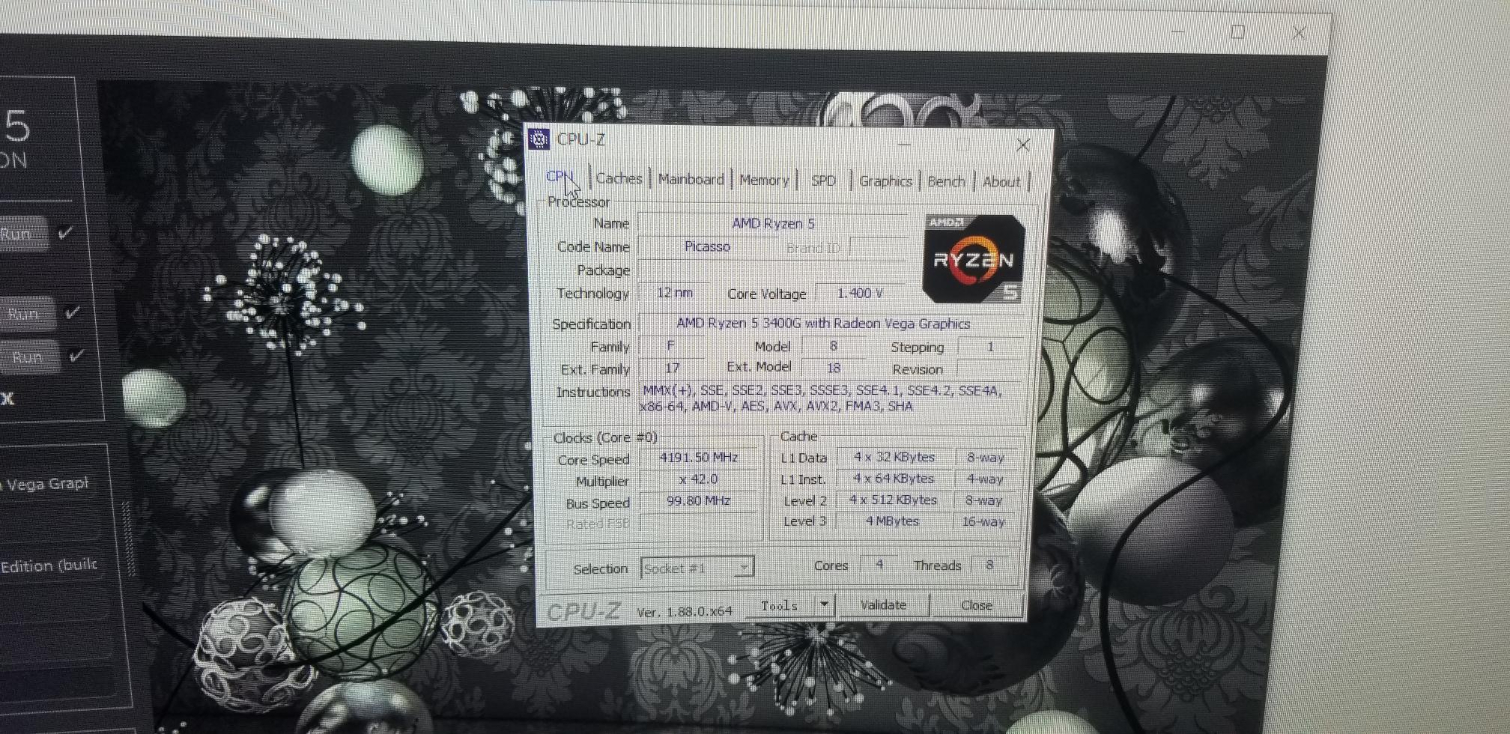
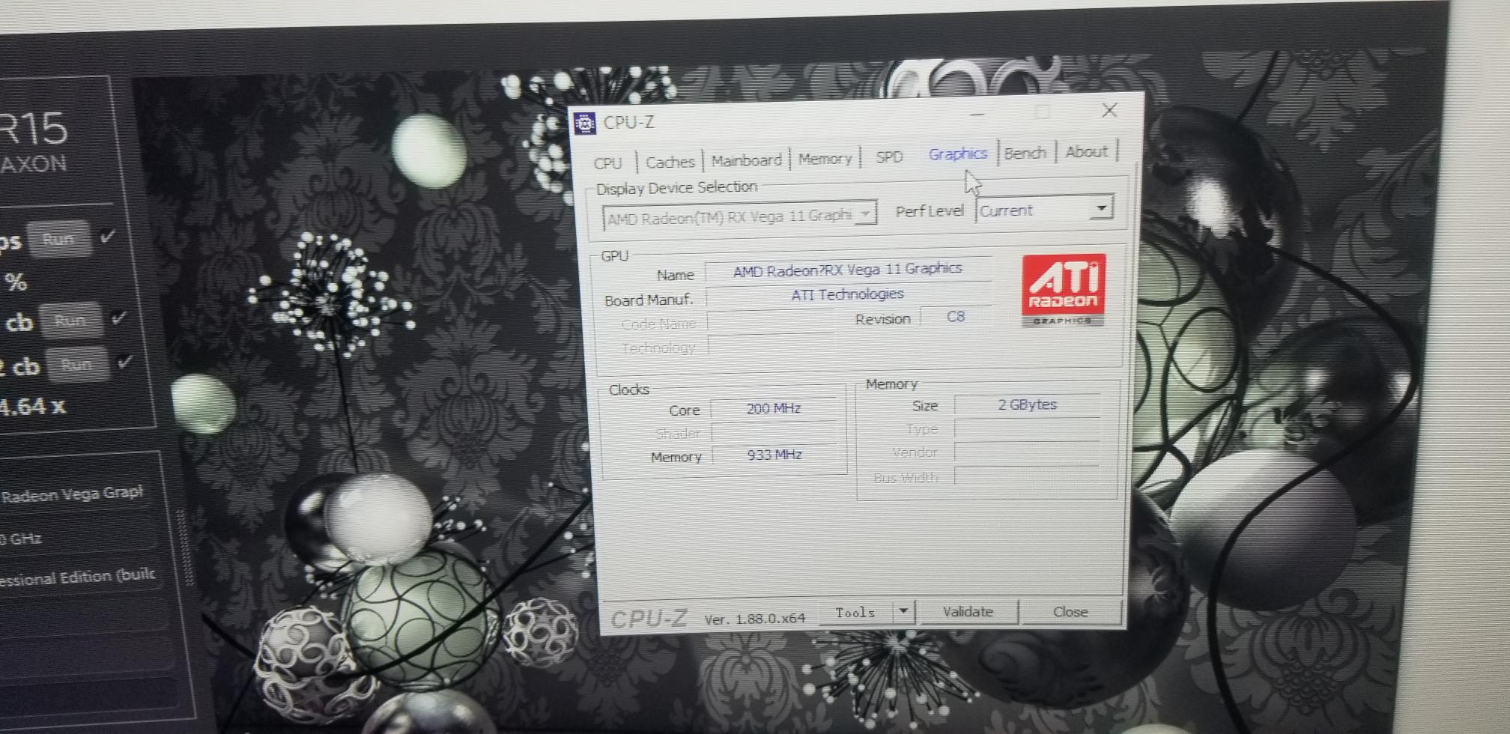
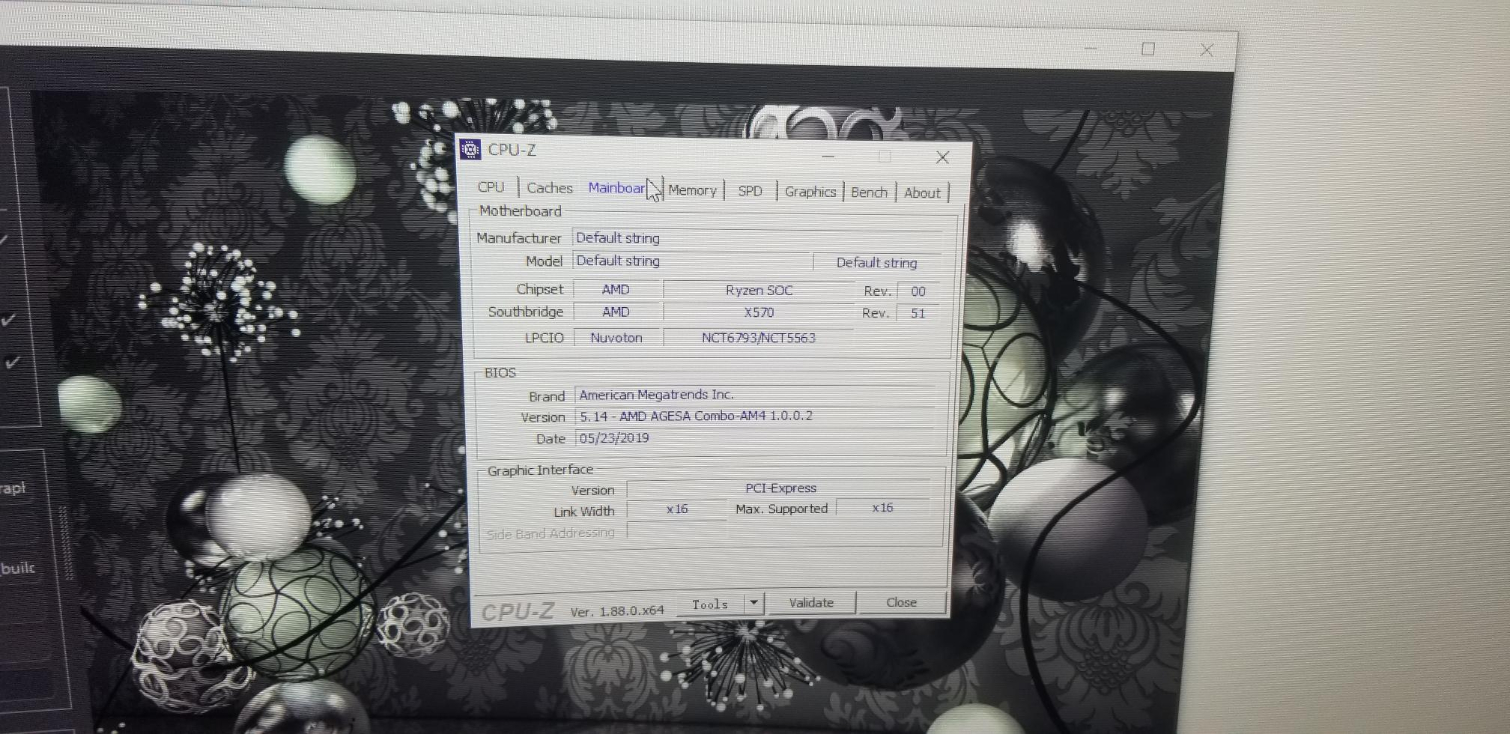
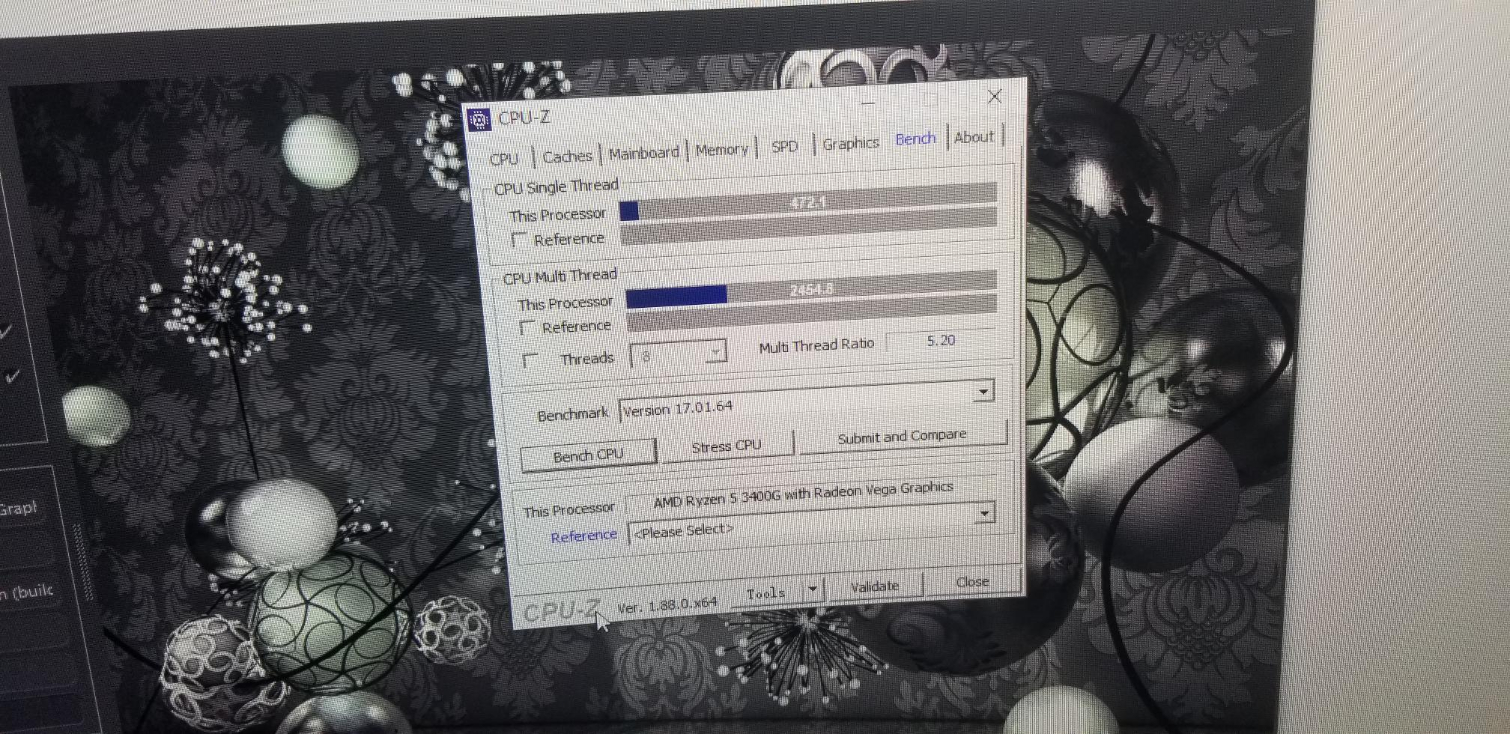
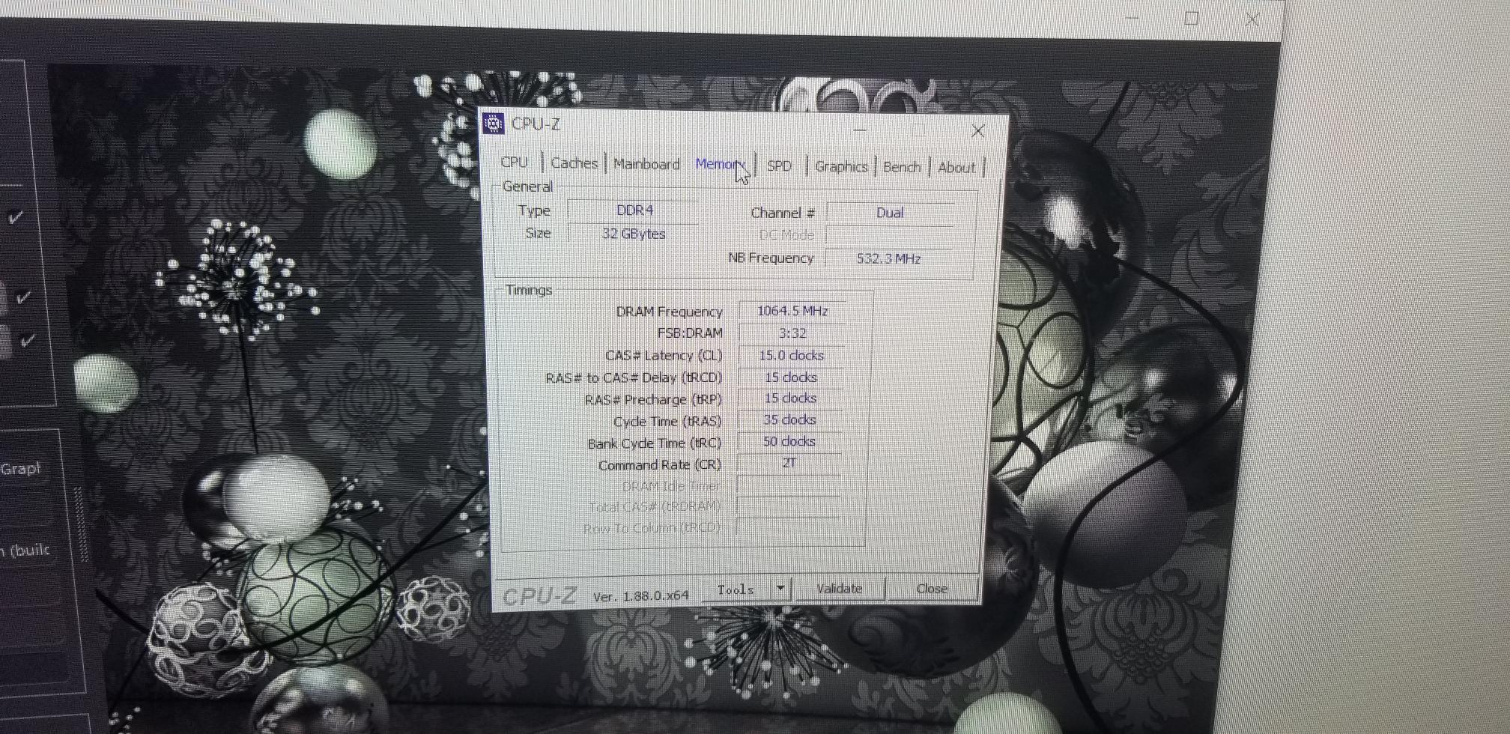
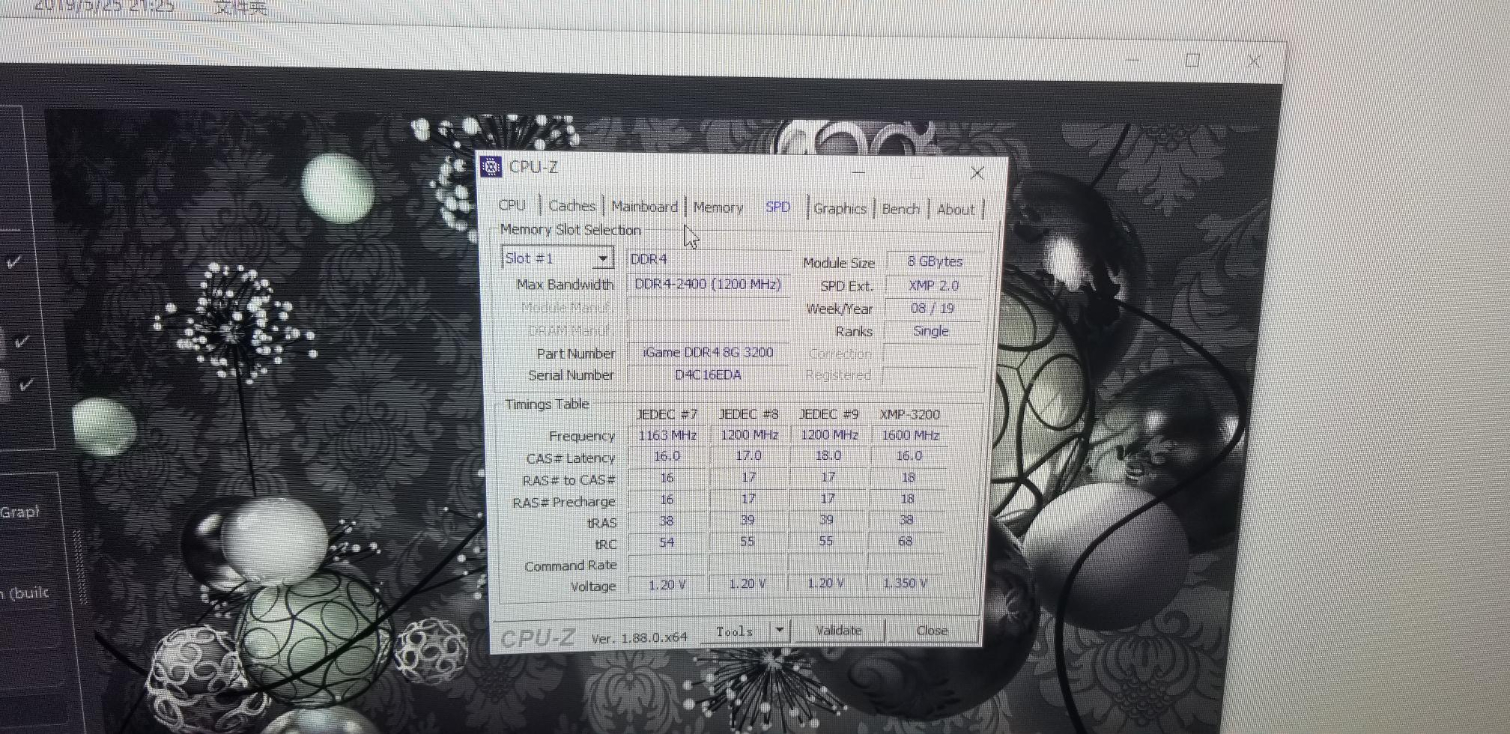
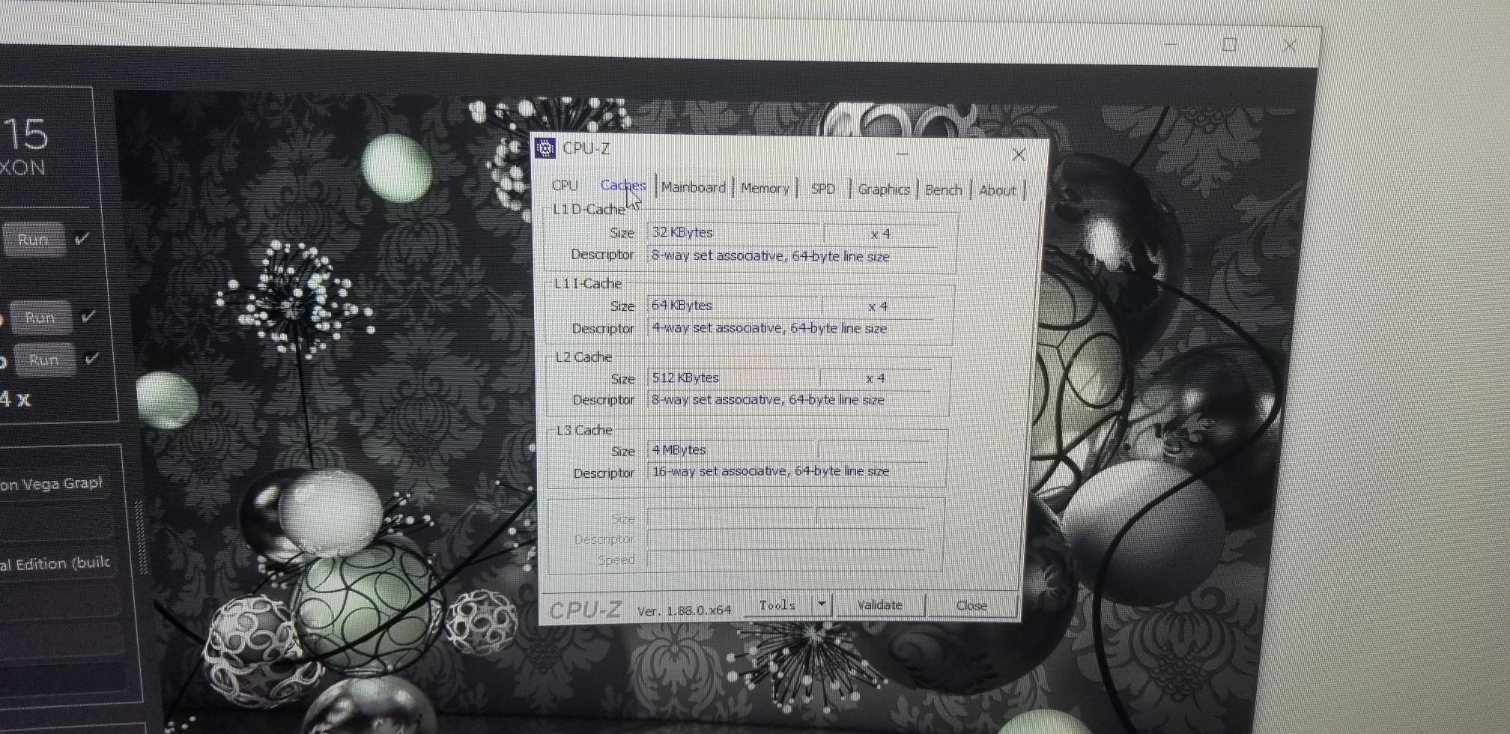
We did encounter a bit of a language barrier with the operating system but managed to grab a few shots with key stats and load a few benchmark results before we were kindly asked not to manipulate the demo. In either case, we managed to pull enough information off the demo system to confirm a few recent tidbits we've already seen posted to public test databases.
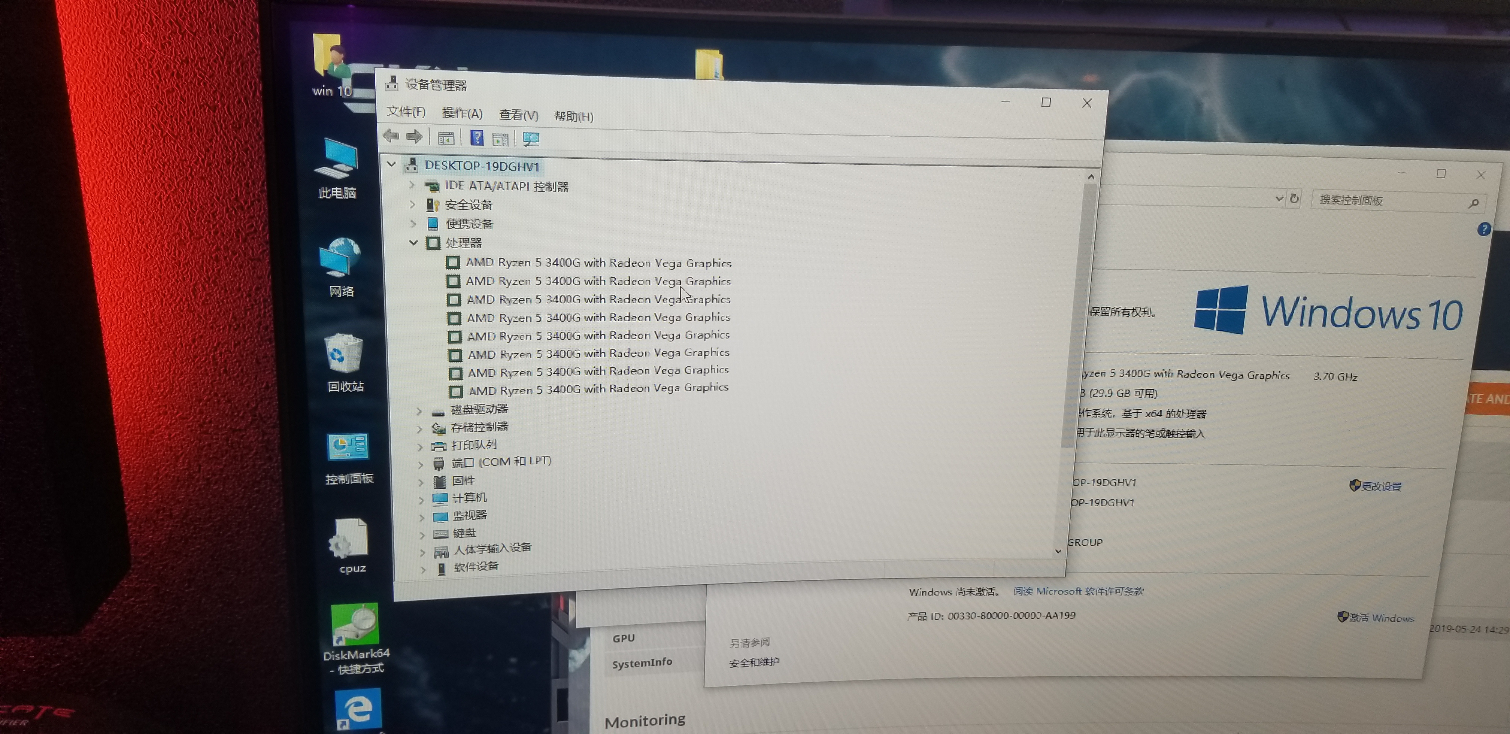
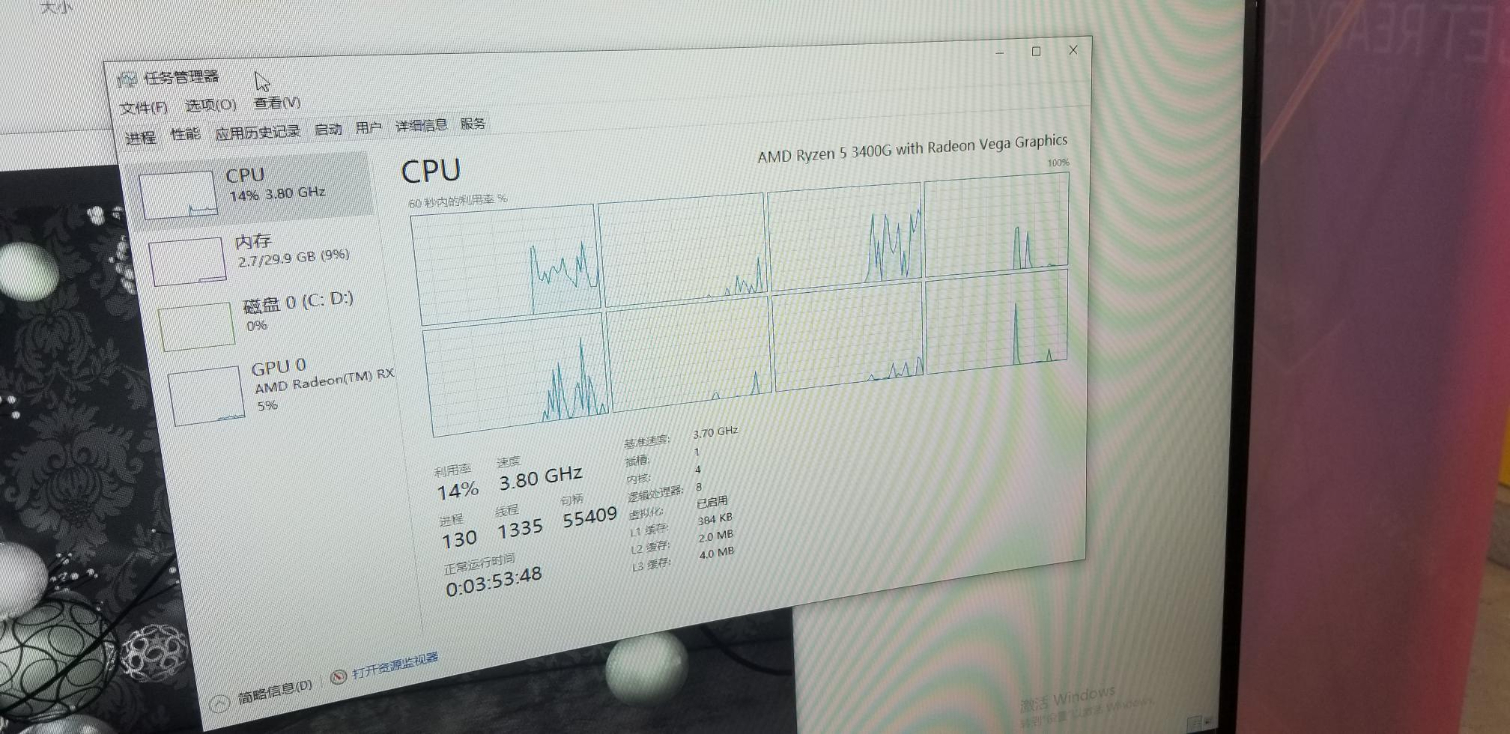
The four-core eight-thread chip runs at a 3.8 / 4.2 GHz base/boost, a nice increase over the Ryzen 5 2400G. The sample was running with DDR4-2400 memory settings, but we're sure that isn't the official memory speed. The reduced memory speed throws off the benchmarks we ran, meaning that higher performance could be possible with higher memory transfer rates. Unfortunately, we were unable to adjust the settings in the BIOS. From previous listings, it appears the chip supports DDR4-3200 memory.


Time was short, so we were only able to load a few of the saved 3DMark benchmark runs, and we didn't have any time for more in-depth testing. AMD hasn't officially announced the chips, so we have no idea of pricing or availability. Given that the chips are obviously already in the wild, we expect an official announcement soon.
Get Tom's Hardware's best news and in-depth reviews, straight to your inbox.

Paul Alcorn is the Editor-in-Chief for Tom's Hardware US. He also writes news and reviews on CPUs, storage, and enterprise hardware.
-
alextheblue Are they confirmed to be Zen+? All the earlier info I ran across seemed to indicate they were just Raven Ridge shrunk to 12nm... and not really a full shrink so much as a direct port, ala the RX590. If they're using the same design as Raven Ridge, they're slightly enhanced original Zen, rather than Zen+. It would be nice if they really are Zen+, might gain a few % IPC in addition to the clock increase.Reply -
bit_user Reply
I think that's what most people mean by Zen+, as opposed to the new Zen 2 cores in the just-announced Ryzen 3000 series CPUs.alextheblue said:Are they confirmed to be Zen+? All the earlier info I ran across seemed to indicate they were just Raven Ridge shrunk to 12nm... and not really a full shrink so much as a direct port, ala the RX590.
I want a Pro version of one of these, so I can upgrade my fileserver to run without a dGPU. Sadly, I've not found a way to source Ryzen Pro CPUs or APUs. I want to ask them about that, at the next AMD AMA. -
alextheblue Reply
But that's not Zen+. You've got Zen, the tweaked Zen found in Raven Ridge (I sometimes call it Zen 1.1 or Zen enhanced but AFAIK it's still officially just "Zen"), Zen+, and soon Zen 2. Zen+ confers extra performance benefits, which is why I wanted to know. Of course the big leap won't happen until we get a Zen 2 APU.bit_user said:I think that's what most people mean by Zen+, as opposed to the new Zen 2 cores in the just-announced Ryzen 3000 series CPUs. -
bit_user Reply
Zen+ is actually the same design as Zen. The layout is exactly the same - they just used a 7.5T library instead of a 9T one. Aside from that, the remaining differences can be accounted for by microcode changes. Read this page:alextheblue said:But that's not Zen+. You've got Zen, the tweaked Zen found in Raven Ridge (I sometimes call it Zen 1.1 or Zen enhanced but AFAIK it's still officially just "Zen"), Zen+, and soon Zen 2. Zen+ confers extra performance benefits, which is why I wanted to know. Of course the big leap won't happen until we get a Zen 2 APU.
https://www.anandtech.com/show/12625/amd-second-generation-ryzen-7-2700x-2700-ryzen-5-2600x-2600/2
I can't find any indication of core changes in Raven Ridge, aside from cutting down L3 cache from 2 MiB/core to 1 MiB/core. If you have a source on that, please share. -
alextheblue Reply
Well just to make sure, I'll reiterate that Raven Ridge isn't Zen+. It's Zen, but with some tweaks that improved cache latencies vs Zen as found in the 1xxx chips. The reduced L3 hindered its ability to take advantage of this, to be sure, but compared to Zen quads I think that's more than offset by the single CCX setup. They also improved boost and power management, which at stock limits means better performance - those last two alterations are not a core change but I don't believe I specified only core differences (apologies if I did, as you know a CPU design is a lot more than just cores these days). Even if it's not a core change, it's not just microcode either.bit_user said:I can't find any indication of core changes in Raven Ridge, aside from cutting down L3 cache from 2 MiB/core to 1 MiB/core. If you have a source on that, please share.
Yes, more room in between transistors and such, good for slight clock bumps. But the article says they improved the cache hierarchy, and further improved on boost, power management, better (more granular?) curves, perhaps faster at moving along the curve too? The article even specifies a 3% IPC boost, YMMV - could be higher in latency-sensitive applications, may not make any difference in others. Definitely made alterations which resulted in better IPC and perf/watt. Oh the memory controller was improved a little too, easier to coax better memory settings out of Zen+ vs original 1000 series Zen. That won't show up in "fair" IPC tests, but if the new CPU has that capability and it allows for improved performance, I think it's fair to mention.bit_user said:Zen+ is actually the same design as Zen. The layout is exactly the same - they just used a 7.5T library instead of a 9T one. Aside from that, the remaining differences can be accounted for by microcode changes.
Some of this is covered on page 2 and 3 of the article you linked.
Of course all of that pales in comparison to the overhaul that is Zen 2, but who knows when we'll see a Zen 2 APU. -
bit_user Reply
Yes, because Zen+ was the 12 nm respin and Raven Ridge was still 14 nm.alextheblue said:Well just to make sure, I'll reiterate that Raven Ridge isn't Zen+.
I assume the cache tweaks were either due to having only one CCX, or maybe microcode tweaks like those which went into "Zen+". If you have any actual source, that would be appreciated. As I said, I couldn't find any discussion of core improvements, in RR. I didn't exactly scour the internet, but you're the one making the claim.alextheblue said:It's Zen, but with some tweaks that improved cache latencies vs Zen as found in the 1xxx chips.
All of which could be accounted for by microcode changes. Certainly, things like boost and power management are implemented in microcode - there's no need to hardwire that stuff.alextheblue said:But the article says they improved the cache hierarchy, and further improved on boost, power management, better (more granular?) curves, perhaps faster at moving along the curve too?
Which article? 3% is the amount Zen+ got, but the article makes clear that is a test of system-level efficiency (page 4, paragraph 2).alextheblue said:The article even specifies a 3% IPC boost, YMMV - could be higher in latency-sensitive applications, may not make any difference in others.
You were talking about cores, but now you're expanding out to the memory controllers?alextheblue said:Oh the memory controller was improved a little too,
So far, I don't see any evidence that the core design actually changed between Zen, whatever RR had, and Zen+. Moreover, when you consider the cost and time involved in doing so, it doesn't seem logical that they would've done anything just for RR. I think you're trying to draw a distinction where there isn't one. I'm betting Ryzen 5 3400G is going to perform almost exactly like the non-APU Ryzen 2000-series. Call the core what you want, but it's effectively Zen+, if not exactly. It's just unfortunate they didn't take the opportunity to boost the L3/core ratio back up to 2 MB.
Again, sources, if you have 'em. -
alextheblue Reply
You say the changes (for example PB to PB2) and LDO are entirely enabled in microcode, so I'll take your word for it. Ditto for cache, not sure how they achieved lower cache latency, again I defer to your knowledge of RR's layout. That aside, there do appear to be some differences, however they are achieved.bit_user said:Yes, because Zen+ was the 12 nm respin and Raven Ridge was still 14 nm.
I assume the cache tweaks were either due to having only one CCX, or maybe microcode tweaks like those which went into "Zen+". If you have any actual source, that would be appreciated. As I said, I couldn't find any discussion of core improvements, in RR. I didn't exactly scour the internet, but you're the one making the claim. All of which could be accounted for by microcode changes. Certainly, things like boost and power management are implemented in microcode - there's no need to hardwire that stuff.
https://www.tomshardware.com/reviews/amd-ryzen-5-2400g-zen-vega-cpu-gpu,5467-2.html
I never intended to specify changes to the core only, that's why last post I said "I don't believe I specified only core differences (apologies if I did, as you know a CPU design is a lot more than just cores these days)." It was always my intention to include any changes to the CPU design that would impact performance, including uncore and layout. Since the article you linked before does indeed do their testing at different memory speeds, I found the article I was originally thinking of. Memory performance even at the same speeds and cache latency are improved. IPC is higher in some cases but the impact varies greatly... it's probably due to the IMC and cache improvements, however those were achieved.bit_user said:Which article? 3% is the amount Zen+ got, but the article makes clear that is a test of system-level efficiency (page 4, paragraph 2).
You were talking about cores, but now you're expanding out to the memory controllers?
So far, I don't see any evidence that the core design actually changed between Zen, whatever RR had, and Zen+.
https://www.tomshardware.com/reviews/amd-ryzen-7-2700x-review,5571-3.html
If it's Zen+ based, then yes, I agree. That was actually my original question, but in digging around yeah it appears it's confirmed to be Zen+.bit_user said:I'm betting Ryzen 5 3400G is going to perform almost exactly like the non-APU Ryzen 2000-series. Call the core what you want, but it's effectively Zen+, if not exactly.
